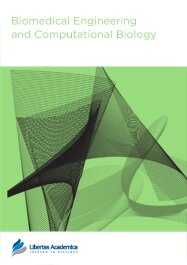

Publication Date: 21 Apr 2014
Type: Perspective
Journal: Biomedical Engineering and Computational Biology
Citation: Biomedical Engineering and Computational Biology 2014:6 1-11
doi: 10.4137/BECB.S10967

Adverse events because of medical errors are a leading cause of death in the United States (US) exceeding the mortality rates of motor vehicle accidents, breast cancer, and AIDS. Improvements can and should be made to reduce the rates of preventable surgical errors because they account for nearly half of all adverse events within hospitals. Although minimally invasive surgery (MIS) has proven patient benefits such as reduced postoperative pain and hospital stay, its operative environment imposes substantial physical and cognitive strain on the surgeon increasing the risk of error. To mitigate errors and protect patients, a multidisciplinary approach is needed to improve MIS. Clinical human factors, and biomedical engineering principles and methodologies can be used to develop and assess laparoscopic surgery instrumentation, practices, and procedures. First, the foundational understanding and the imperative to transform health care into a high-quality and safe system is discussed. Next, a generalized perspective is presented on the impact of the design and redesign of surgical technologies and processes on human performance. Finally, the future of this field and the research needed to further improve the quality and safety of MIS is discussed.
PDF (1.44 MB PDF FORMAT)
RIS citation (ENDNOTE, REFERENCE MANAGER, PROCITE, REFWORKS)
BibTex citation (BIBDESK, LATEX)

I enjoyed doing the recent peer review and after reading the article felt that I was witnessing a new way of thinking and examining issues. Thank you for allowing me to be a part of this exciting venture into discovery.
Facebook Google+ Twitter
Pinterest Tumblr YouTube